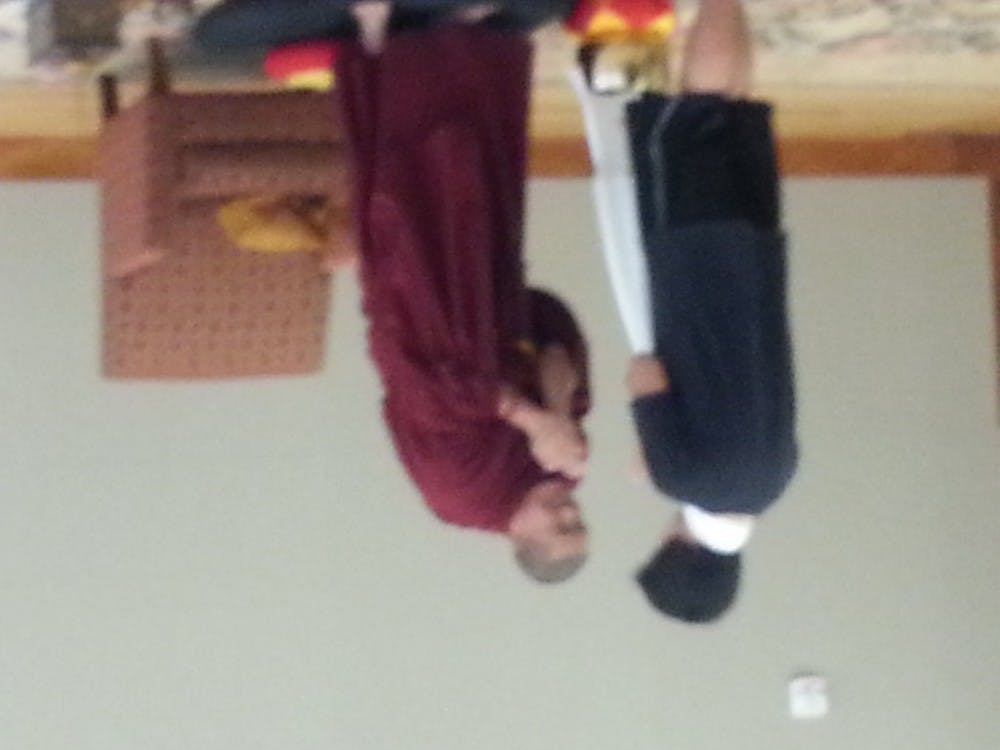A touch of Tibet came to Elon University April 3 when Buddhist teacher and expert-meditator Geshe Gelek visited campus to promote strategies for positive thinking.
“In my time in the United States, one thing I’ve learned here is that people are very hard on themselves,” Gelek said.
Gelek, the resident teacher of Buddhism at the Kadampa Center in Raleigh, led a meditation and spoke at the Numen Lumen Pavilion in a visit sponsored by the Truitt Cente, Elon’s Asian Studies department and Iron Tree Blooming, Elon’s meditation society.
Much of Gelek’s talk, filled with laughter and direct interactions with audience members, focused on Buddhist teachings and scholarship from the eighth century and the importance of using control of the mind to control the difficulties people face.
“We cannot fix everything,” he said. “In Tibetan Buddhism, we believe the reason is karma.”
The way to control the mind is through repeatedly telling oneself positive things. Gelek helped this along by using common U.S. phrases like “rise and shine” and “every cloud has a silver lining.”
“Find something about yourself for which you are grateful or that you take pride in,” he said. “Remember that we are each a precious human life.”
Senior Muhammad Musah asked Gelek how to stay positive in America, where “people are always trying to step on each other.” Gelek admitted it’s not easy.
“Telling your mind something positive every day recharges us so we can avoid and ignore when someone makes us upset,” he said. “Otherwise, in that moment, it’s almost impossible to be positive.”
Gelek added that much of frustration and inability to reconcile with others comes from the ego, which he characterized as a dictatorship within our own minds, controlling what we do and feel.
Expanding one’s mind and thinking about others is something Gelek encouraged, particularly when it comes to environmental issues.
“If you’re passionate about the environment, you are not just concerned about yourself,” he said. “You’re concerned about all living things on this planet.”
But, Gelek also encouraged the audience that with any issue they want to fix or study, there must be passion behind it.
“If you don’t have passion, it means nothing,” he said.
When it comes to trying to tackle the problems of the world, Gelek continued to push for positive thinking and focusing on finding solutions rather than counting problems.
“If you stop and think what you can do, you will find there are a lot of things you can do,” he said.
As an accompanying note on reducing one’s ego and looking for solutions, Gelek gave his perspective as a Buddhist on the importance of people all over the world finding harmony with one another.
“Race, religion, class, nation. These are all secondary,” he said. “On a fundamental level, we are the same.”


